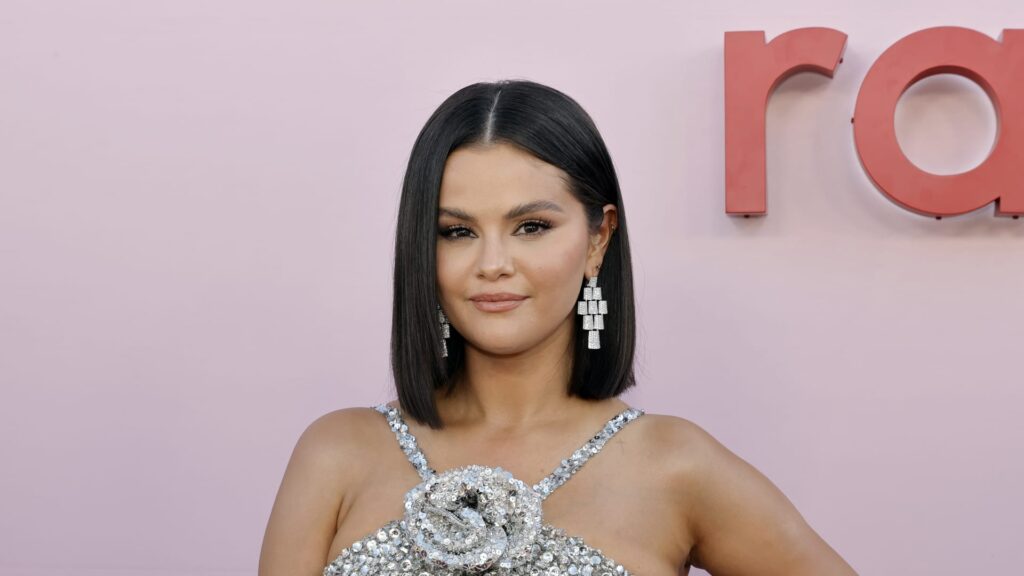Selena Gomez’s makeup brand Rare Beauty has catapulted her to billionaire status, according to a recent Bloomberg estimate.
But the 32-year-old singer and actor started out as a kid from Grand Prairie, Texas, who couldn’t afford plane tickets to castings and auditions, she said on “The Ellen DeGeneres Show” in 2008. “When I was 12 years old, Disney Channel had a nationwide casting search, and we could never really afford to fly out to California,” Gomez said. “So I sent in tapes, and [I] guess they liked me.”
Auditions weren’t new for Gomez: She appeared on “Barney & Friends” — braving a line of 1,400 other kids in their hometown to book the gig, she said — and in commercials for Chili’s and T.G.I. Fridays before sending tapes to Disney. Her single mom, Mandy Teefey, juggled three jobs while acting in commercials and local stage productions during Gomez’s early childhood.
Ultimately, Gomez’s remotely filmed audition helped her book the starring role in Disney Channel’s “Wizards of Waverly Place,” which aired from 2007 to 2012. She’s since been nominated for multiple Emmy Awards, Grammy Awards and Golden Globe Awards for her work across film and music.
Rare Beauty came along in 2020. Gomez, who’s publicly discussed her own struggles with bipolar disorder, launched it as a way to promote mental health in the beauty industry. She wanted people to feel like they could have fun with makeup, rather than needing it to be pretty, she told Fast Company last year.
The brand, led by CEO Scott Friedman, gained traction on TikTok during the height of the Covid-19 pandemic, as social media influencers touted its mid-range price point and mental health advocacy. The company sends 1% of each sale to the Rare Impact Fund, an organization Gomez founded to help young people gain access to mental health services.
Rare Beauty brought in a reported $350 million in sales last year, according to Business of Fashion. It helped grow Gomez’s net worth to $1.3 billion, according to the Bloomberg Billionaires Index.
Not every celebrity brand is quite so successful. When such brands fail, they typically do so for three reasons, marketing lecturer and economics researcher Omar H. Fares wrote for The Conversation last month: poor quality, lack of authenticity and misaligned marketing.
“Consumers expect products to deliver on promises, and if quality is lacking, no amount of celebrity endorsement can save the brand,” Fares wrote, adding: “Consumers are increasingly drawn to brands that feel like a true extension of the celebrity’s personal brand and values.”
In Gomez’s case, she’s been a mental health advocate long before Rare Beauty, most notably since her 2016 “Revival” tour was cancelled due to her anxiety and depression amid a lupus diagnosis. A makeup brand promoting self-acceptance can seem asymmetric, which made Gomez think her products wouldn’t sell, she told People in 2022.
Since then, she’s expressed her pride in Rare Beauty’s growth and dedication to promoting mental health.
“I think that we’ve been able to do something that, at least in cosmetics, no one has ever done,” Gomez said at the 2024 TIME 100 Summit in April. “That is what makes me happy every night when I go to sleep.”
Want to be a successful, confident communicator? Take CNBC’s online course Become an Effective Communicator: Master Public Speaking. We’ll teach you how to speak clearly and confidently, calm your nerves, what to say and not say, and body language techniques to make a great first impression. Get started today.
Plus, sign up for CNBC Make It’s newsletter to get tips and tricks for success at work, with money and in life.

